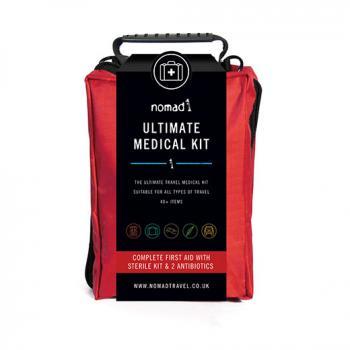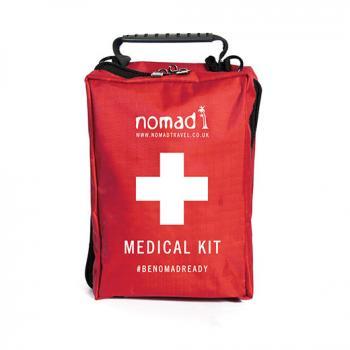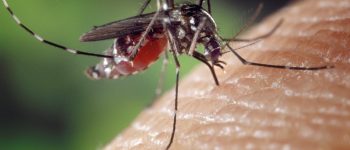Vaccinations for Mexico
For most travellers the recommended vaccinations vaccinations for Mexico include: Hepatitis A & Tetanus
For people trekking in the countryside, staying for longer periods or for those at higher risk, recommended vaccinations for Mexico might include: Cholera, Hepatitis B, Rabies, Typhoid & Yellow Fever
There is no risk of Yellow Fever in Mexico.
Vaccines Recommended to All Travellers to Mexico
All travellers to all areas of this country are advised to have these vaccinations along with staying up to date with the routine vaccination schedule for the UK. Book a consultation for a full travel health risk assessment.
Hepatitis A
Hepatitis A is a virus spread through food, water or contact with an infected person that affects the liver. Vaccination against Hepatitis A is recommended, as well as adequate food & water hygiene.
- 1 dose of Hepatitis A is required
- Given a minimum of 2 weeks before travel
Tetanus
Tetanus is a disease caused by bacteria present in soil everywhere in the world. Tetanus causes painful muscle spasms and can lead to death. Vaccination against Tetanus is recommended to all travellers.
- 1 dose of Tetanus is required
- Given any time before travel
Typhoid
Typhoid is spread through contaminated food and water. Typhoid is common in areas with poor standards in food hygiene & preparation, and where suitable treatment of sewage is lacking. There are several types of Typhoid vaccination available.
- 1-3 doses of Typhoid are required
- Doses administered once or over 4 days
- Given 7-14 days before travel
Vaccines Recommended to Some Travellers to Mexico
These vaccinations may be advised depending on the specific areas you are travelling to, your medical history and your itinary. Book a consultation for expert guidance on whether these vaccines are recommended for you.
Cholera
Cholera is caused by bacteria spread through food and water. Vaccination against Cholera may be recommended, along with adequate food & water hygiene.
- 2 doses of Cholera are required
- Doses administered 1-6 weeks apart
- Given any time before travel
Hepatitis B
Hepatitis B is viral disease that is spread through blood and bodily fluids. Vaccination against Hepatitis B may be recommended
- 3-4 doses of Hepatitis B are required
- 21 days apart with a further dose 1 year later for full protection
- Given any time before travel
Rabies
Rabies is endemic throughout most of the world. The Rabies virus is carried in the saliva of infected mammals. Rabies affects the nervous system and, once symptoms develop, death is inevitable – even with good medical care.
- 3 doses of Rabies vaccine are required
- Doses administered 21-28 days apart
- Given any time before travel
Typhoid
Typhoid is spread through contaminated food and water. Typhoid is common in areas with poor standards in food hygiene & preparation, and where suitable treatment of sewage is lacking. There are several types of Typhoid vaccination available.
- 1-3 doses of Typhoid are required
- Doses administered once or over 4 days
- Given 7-14 days before travel
Yellow Fever
Yellow Fever is endemic in parts of Sub-Saharan Africa and South America. Yellow Fever is spread by infected mosquitoes normally most active from sunrise to sunset. Many countries, where the disease is not endemic, require a valid certificate of vaccination against Yellow Fever before you can enter as a traveller.
- 1 dose of Yellow Fever vaccine is required
- Given any time before travel
- Yellow Fever certificate of vaccination is valid for life
Malaria Risk in Mexico
Malaria is present in Mexico.
There is no vaccination against Malaria, you may need to take Antimalarial tablets there are some high risk areas. We recommend you have a consultation with an expert Nomad nurse to talk through your malaria tablet recommendations.
For a detailed map of the Malaria risk in this country, click here (Source: fitfortravel)
Yellow Fever in Mexico
There is no risk of Yellow Fever in Mexico.
Yellow fever vaccination certificate is not required to enter this country
For details on Yellow Fever risk areas, click here (Source: fitfortravel)
Other Health Risks
Chikungunya in Mexico
There is a risk of Chikungunya virus in this country. Spread by mosquitos, Chikungunya virus is widespread across Africa, South-East Asia, the Indian sub-continent and the Philippines. Occasionally, the virus can be found in other countries where the mosquito that spreads Chikungunya can also be found. There is no vaccination against Chikungunya, it is important to protect yourself with bite avoidance products like DEET.
High Altitude in Mexico
There are some high altitude areas. Travellers should take care to avoid Acute Mountain Sickness (AMS) by taking time to acclimatise properly. AMS can affect anyone, regardless of age, gender, level of fitness or training. At high altitude, extra precautions should be taken against the harsh conditions, which can cause damaging ultraviolet and cold exposure. All Nomad Travel Health Nurses are trained to advise on AMS, and it may be appropriate for you to take certain medications that may help with acclimatisation. Book an appointment to discuss health issues related to altitude, based on your specific itinerary.
Dengue Fever in Mexico
There is a risk of Dengue Fever. It is spread by a species of mosquito called Aedes aegypti, otherwise known as the ‘tiger mosquito’ which mainly bites during the day. The illness is widespread throughout the tropics and subtropics, affecting over 100 countries with approximately 50 million cases globally a year. Currently most infections occur in SE Asia, South and Central America, Mexico, Africa, Indian sub-continent, Hawaii and the Pacific. Find out more about vaccination against Dengue Fever. It is also important to protect yourself during the day with bite avoidance products like DEET.
Zika Virus in Mexico
Zika is a viral infection transmitted by daytime biting mosquitoes. These mosquitoes bite an infected person and then spread the infection to others when they bite again. Pregnant women are advised not to travel into Zika regions, and male partners must use condoms for 6 months after travel into affected areas to prevent sexual transmission of the disease to a pregnant partner. If planning pregnancy, female travellers should avoid getting pregnant for at least 8 weeks after being in a Zika region. Whereas men must avoid getting a woman pregnant for at least 6 months following travel into a Zika region as the virus can survive in sperm for much longer and can be sexually transmitted. Find out more about Zika Virus.












